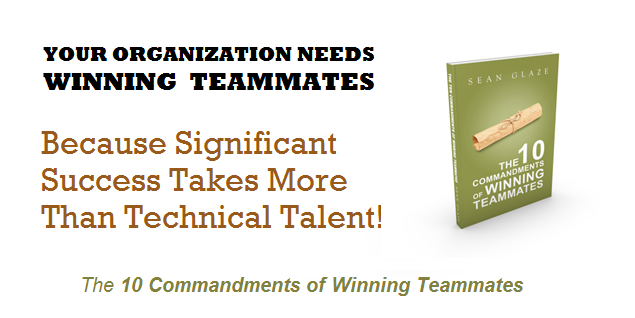
There is a big difference between brick walls and speed bumps.
And I shared this with my son, because I couldn’t teach him to be taller.
At 12 years old, he worked passionately on improving his dribbling and shooting for hours out in our driveway. But each night he would pray to grow taller – so he could be a better basketball player.
And I would tell him (on a few occasions), that height might help, but success is achieved by focusing on and doing the things that you can control.
He was 5’2” – and he couldn’t control his height.
But after coaching hundreds of athletes and facilitating workshop events for thousands of professionals and teammates in a variety of industries, I knew that he COULD learn to be tougher.
Toughness and resilience are skills, just like dribbling or shooting in basketball.
And the truth is that, unlike height, resilience can be taught!
In my experience, whether it is in basketball or in business, a person’s resilience is based on two things: what you ask yourself and what you see.
My son worked hard on improving his skill. He spent hours alone in the driveway pushing himself through creative drills to get better.
But skill without resilience and toughness is like a fighter with a glass jaw.
When it is tested by adversity, a glass jaw will shatter.
So if my son truly wanted to be a competitor, he needed to focus on more than just technical skills. He needed to invest time and energy in improving his toughness.
And like any other skill, I explained to him that improving it was simple, but not easy.
It would take intention and repetition to build it.

To get better, he (like you) needed to focus on two things:
- What are you choosing to ask yourself?
In the middle of facing an obstacle, it is important to raise your awareness of your internal dialogue.
What question is running through your mind?
Athletes and teammates who struggle with adversity often ask themselves questions that victims would ask, such as “why me?” or “why did my teammate do that?”
But resilient people – tough people – ask a different question of themselves.
They focus on what they can control, and simply ask themselves “what can I do now?”
They shift their focus from others, who they cannot control, to themselves and the actions that are within their control.
And the question also focuses on the NEXT PLAY – which is the most important one.
Victims live in the rearview mirror. Victors look out the windshield and train themselves to think about what they need to do next in order to be successful.
- What are you choosing to see?
Some people, whether it is in classrooms, or locker rooms, or board rooms, will experience adversity and immediately see a brick wall and say to themselves, “this is too much for me!” or “I can’t do it!”
As a coach, and especially as a teacher, I would observe students reactions to challenges.
And the ones that struggles to perform well were seldom less intelligent or capable – they simply defined the situation as impossible to overcome. They would lay down and quit and give up.
They struggled BECAUSE they saw the obstacle as a brick wall – and their sense of powerlessness became a self-fulfilling prophecy.
You have probably known people like that.
Some people treat even minor inconveniences as brick walls, and give up and lay down and complain and quit when the slightest difficulty presents itself.
But the tough ones – winning teammates – see challenges a different way and say different things.
Resilient teammates see every obstacle as a speed bump, and say to themselves “I can handle it!” They believe in themselves and their ability to grow and succeed eventually.
In basketball, and in your business, resilience is vital to team success.
Average teams are doomed to remain average and to underachieve if some of their members have technical skills but lack toughness skills.
If a great shooter misses his first few shots in a game and then gets frustrated and disconsolate, they are hurting the team. If a salesperson gets a few “no’s” and gets frustrated or disconsolate, they are hurting the team.
Winning teammates don’t see challenges as brick walls. They see obstacles as speed bumps that can be overcome with effort and determination. And they see themselves as capable of handling it.

In the 2016 NCAA Basketball Tournament, Villanova showed great resilience.
They missed 130 shots. They missed 19 free throws
They had 13 shots blocked.
They were called for 85 fouls.
They turned the ball over 62 times.
And they went 6-0 to become National Champions – because they kept playing and saw their mistakes as speed bumps instead of brick walls!
And the good news is that, unlike height, you CAN learn resilience.
All it takes is a commitment to maintain an awareness of two things:
Are you asking yourself “Why,” or “What can I do now?”
Are you seeing a brick wall or a speed bump?
Winning Teammates know it isn’t technical skills, but toughness and connections that causes teams to overachieve.
I’d love to hear how toughness has affected your team in the past!

